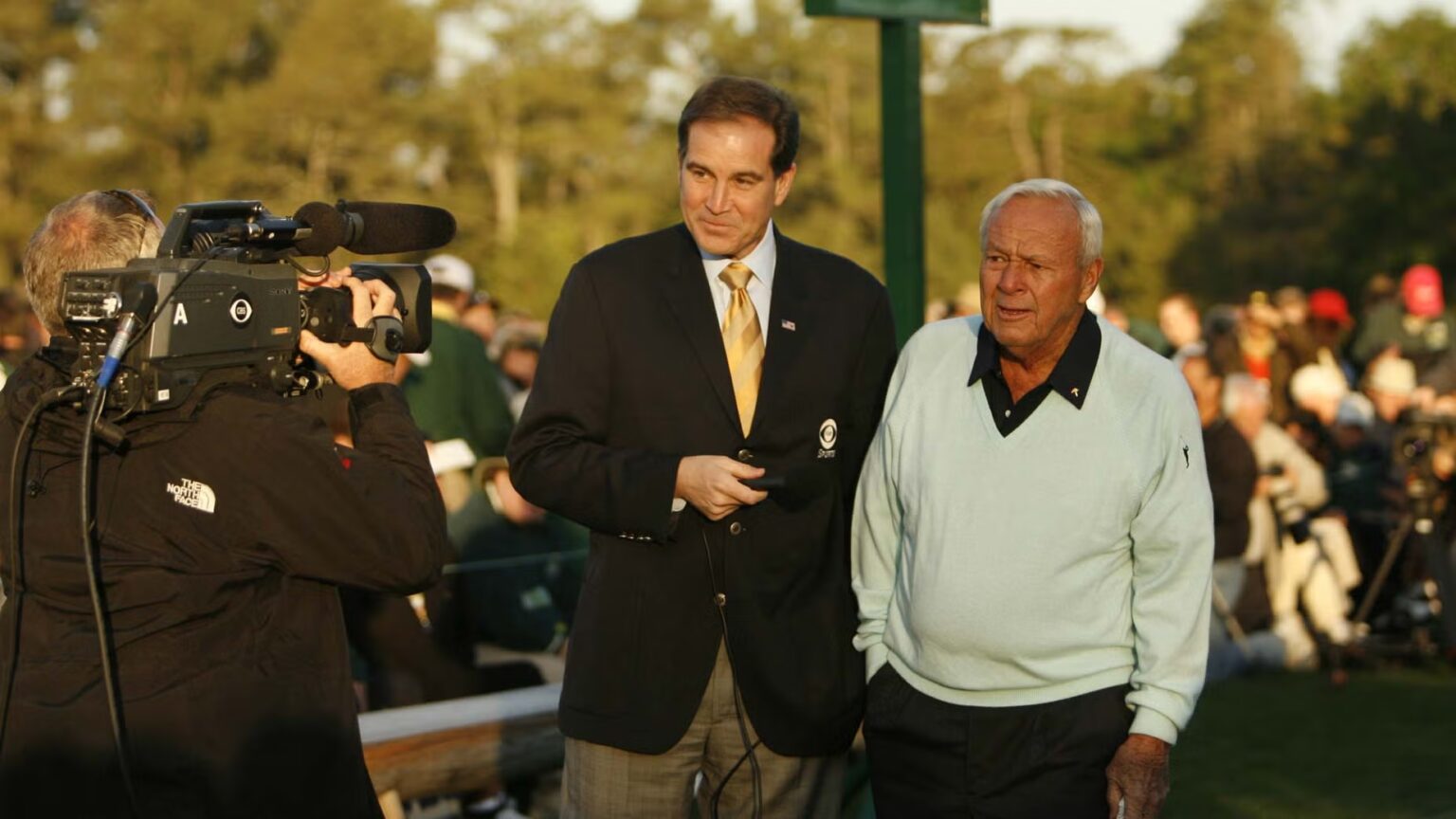Jim Nantz: Life Lessons from Loss and Legend
In an exclusive ESPN interview, Kevin Clark sat down with the iconic sports broadcaster Jim Nantz just days after the passing of his father. The conversation delved into Nantz’s personal grief and revealed insights that were profoundly shaped by his relationship with legendary golfer Arnold Palmer. These moments serve not only as a tribute to Nantz’s father but also highlight the universal themes of loss, resilience, and the profound wisdom imparted by mentors like Palmer.
Nantz, known for his warm voice and eloquent commentary, has built a career that celebrates the rich stories behind the games we love. In this poignant interview, he reflects on the lessons he learned from both his father and Palmer, shedding light on how personal experiences can shape one’s perspective in life and professional endeavors. One particular piece of advice from Palmer resonated deeply with Nantz, serving as a guiding light during this challenging time.
Arnold Palmer, a cornerstone of the golfing world, was not just a champion on the course but also a mentor who understood the intricacies of life. Nantz recalls a touching moment when Palmer advised him on dealing with grief, emphasizing the importance of cherishing memories while allowing oneself to grieve. This advice, coming from a man who faced his own share of trials, encapsulates the resilience required to confront life’s inevitable losses.
As a sports reporter, it’s essential to acknowledge the broader implications of such lost experiences. The emotional weight of Nantz’s reflections serves as a reminder that behind every athlete, every sport, and every broadcast, there are human stories filled with triumph and tragedy. These narratives not only connect fans to their favorite sports but also illustrate the shared experiences of grief and healing that unite us all.
In the world of sports broadcasting, Nantz has distinguished himself not only through his unparalleled vocal delivery but also through his ability to connect emotionally with viewers. He often invokes the spirit of the game and the environments that surround it. This week’s conversation with Clark is no different, opening a unique window into how personal experiences can enrich one’s professional narrative.
The passing of a loved one leaves an indelible mark, and for Nantz, his father’s death has brought forth a torrent of emotions. He articulates how the memories of their time together now fuel his passion for storytelling. This profound relationship adds layers to how he interacts with athletes and the stories they share—transforming the mundane into moments that resonate deeply within audiences.
Throughout this interview, players such as Palmer emerge as influential figures who mold our understanding of both sports and existence. It underscores the role of mentorship in sports, illustrating that the lessons learned from greats like Palmer can transcend the boundaries of the golf course and touch upon life’s universal realities. Nantz’s reflections bring Palmer’s wisdom to life, showcasing how it can guide us through our darkest moments.
Moreover, Nantz’s experience underlines the importance of emotional intelligence in sports journalism. Understanding the human element behind athletes and events can provide a richer context for narratives. As a sports reporter, this perspective is invaluable, reminding us that at the heart of every game is the resilience of the human spirit.
As we continue to grapple with loss in our lives, Nantz offers a perspective that encourages us to embrace both memories and emotions. His articulation serves as a reminder of the significance of seeking comfort through shared experiences and the lessons that arise during sorrowful times. This duality—celebrating life while confronting loss—is a vital part of the human experience.
Ultimately, Jim Nantz’s reflections exemplify how sports can provide a platform for deeper emotional explorations. They remind us that, regardless of the sport, we all have our own narratives shaped by love, loss, and the wisdom of those who came before us. Nantz’s tribute to his father and Arnold Palmer captures the essence of what it means to navigate through life, offering a beacon of hope in the face of adversity.
In a world where sports often appear to be a distraction from life’s challenges, conversations like the one between Nantz and Clark illuminate the deeper connections we share. These dialogues reveal the importance of acknowledging grief, celebrating life, and the role of mentors in guiding us through our journeys. As we reflect on Nantz’s insights, we are reminded that the game continues, and so does our pursuit of understanding.
In closing, Jim Nantz’s heartfelt wisdom should inspire all of us to honor our memories, learn from our losses, and carry the legacy of those who have influenced our lives. Whether in sports or daily life, the lessons of perseverance, compassion, and resilience resonate far beyond the field, touching every corner of the human experience.
